Last May, thanks to the New York office of the Flanders Tourist Board, culture editor Lucy Gordan visited Brussels, Bruges, Antwerp and Mechelen, where she interviewed His Excellency André-Joseph Léonard at the archbishop’s palace close to the majestic Gothic cathedral dedicated to the 6th-century Irish or Scottish missionary St. Rumbold, who evangelized Flanders.
Mechelen was the site of several famous meetings connected to Christianity. One in 1909 probably inaugurated the Liturgical Movement. Between 1921 and 1925, a series of unofficial conferences, known as the Malines Conversations, presided over by Cardinal Mercier and attended by Anglican divines and laymen, including Lord Halifax, was the most significant of early attempts at reconciliation between the Anglican and Roman Catholic Churches.
You and your three older brothers all became priests. Was yours a particularly religious family? Was your faith inspired by the loss of your father when the Nazis invaded Belgium?
Bishop André Léonard: No, my family wasn’t particularly religious. According to my mother, my father, who died when I was only 10 days old, would have liked to become a priest, but he’d studied only up to age 14. He wasn’t able to achieve this dream, but we four sons did. My mother told me that shortly before his death, my father suspected that my oldest brother would become a priest. Before us no one in my family had taken vows.
Bishop André-Marie Charue, bishop of Namur, sent you to study at the Leo XIII Seminary in Louvain; was he your mentor?
Léonard: Bishop Charue was my father figure, but with the distance of those times between a bishop and a seminarian. He was the guide of my religious formation. As bishop he deeply worried about the future of his priests and seminarians.
I realized later that he’d silently planned my future. He was a theologian, an exegete. He would have preferred that I study theology or the Scriptures, but he seconded my deep interest in philosophy and sent me to study at Louvain, in an institute created by my famous predecessor, Cardinal Mercier. Afterwards, Bishop Charue sent me to Rome to study theology and then back to Louvain for my doctorate in philosophy. The equilibrium and clarity of his intellect impressed me. He had an important role at Vatican II. He worried that certain of its outcomes would be misinterpreted. He helped me to discern between the Council’s correct guidelines and those doctrinally unfaithful.
Brother Mutien-Marie Wiaux must be especially significant to you, since you added Mutien to your name when you became bishop of Namur?
Léonard: Not really. I was very intellectual, totally caught up in philosophy; Wiaux was a Christian Brother, a very simple person, but beloved in the diocese of Namur. Many of my parishioners there were reluctant to accept an intellectual as their bishop. I wanted to put them at ease by choosing as my second name that of this humble monk.
When did you first sense your vocation?
Léonard: On the day of my First Communion at Christmastime of 1946, I promised Jesus that I’d become a priest — proof that my vocation came from within me, not because someone influenced me. I was six years old. I had no idea that my oldest brother, 11 years older than I, was considering the priesthood. He entered the seminary when I was seven.
You studied at the Gregorian in Rome from 1961 to 1965. Who were your mentors there?
Léonard: Juan Alfaro, a Spaniard who taught the Treatise of the Three Virtues: Faith, Hope and Charity and became one of the most influential theologians in Europe and Latin America after Vatican II; Francis Sullivan, SJ, an American professor of Church history, best-known for his research in ecclesiology and the Magisterium; Canadian Bernard Lonergan, SJ, a first-class philosopher and theologian who lectured on the Trinity and on the Incarnation; he wrote a famous book entitled Insight and was widely recognized as one of the most important Catholic thinkers of the 20th century.
Your favorite churches in Rome?
Léonard: The four basilicas and Bernini’s Sant’Andrea al Quirinale. The latter was very near the Belgian College; during my first year as a young priest I celebrated Mass there every morning. I also love San Giorgio in Velabro, one of Rome’s few surviving Romanesque churches. I’m especially fond of it because its titular cardinal was Cardinal Newman.
After your studies in Rome, you did your doctorate and then taught philosophy at the University of Louvain, first at the Flemish campus and then at the French one, for 20 years. Later, as bishop of Namur, you were particularly fervent in promoting vocations. His Eminence Donald Cardinal Wuerl, now cardinal of Washington, D.C., told me in an interview published here in November 2010 that the responsibilities of a priest and thus of a bishop, are threefold: to teach, to set an example, and to sanctify. Do you agree?
Léonard: Yes, a bishop’s three main responsibilities are to teach, to celebrate the sacraments, and be the shepherd, or, as Wuerl said, “set an example.” As you’ve just said, I taught philosophy for many years. Now I don’t officially teach, but I give conferences. Of course I also celebrate Mass and am deeply concerned about my priests. A bishop is no one without his priests. My main concern is the formation of new priests. Now, thank the Lord, I have the honor of preparing 32 future priests from several countries in my diocese. There are only around 70 seminarians in Belgium. Unfortunately, unlike the US, Belgium’s vocations are still decreasing.
Have you ever doubted your vocation?
Léonard: Never. I was and am an intellectual; if I hadn’t heard my calling, I’d have become a university professor, but, thanks to Bishop Charue, I became both a priest and a university professor. We four brothers were all diocesan priests. My oldest brother was a teacher almost all his life; my second brother taught for a long time and then became a parish priest; my third brother taught music. He started an institute for the study of liturgical music. We all stayed in Belgium.
In 1999 you preached the Lenten retreat for the Roman Curia and Pope John Paul II. Do you have a special memory of him?
Léonard: A half-hour alone with him in 1999 after the retreat: our conversation in French (he spoke French very well) was profound and his manner paternal. He told me which parts of my sermons had moved him the most. I had preached about the themes of the Jubilee, about the sacrament of reconciliation, that during his crucifixion Jesus had confessed all our sins.
The last time we met he’d just finished reading my book for young people on sexual morals. He told me it was excellent!
How often do you go to Rome now?
Léonard: My most recent trip was for the first meeting of the new Pontifical Council for Re-Evangelization a year ago.
Have you been to the United States?
Léonard: Once. One of my priests in Namur now works in the diocese of Rockville Center on Long Island; I visited New York with him.
On January 8, 2010, Pope Benedict XVI appointed you archbishop of Mechelen-Brussels. Do you have a special memory of him?
Léonard: During the meetings of the International Theological Committee I got to know Cardinal Ratzinger, who presided. He seldom spoke during these meetings: only at the beginning of the first session, in Latin, to introduce the topics, then at the beginning of each day in Italian, and at the end of each day he’d summarize synthetically all the viewpoints presented that day and express what we should discuss the next morning. I’d already met him during pilgrimages to Rome with my seminarians. I speak French with him too; his is excellent. He learned it when he was young, so he has almost no German accent. I have met him more often and for longer each time than with John Paul II. Everyone knows John Paul II was resilient before large crowds, but he was reserved, timid, and quiet before small groups or on a one-to-one basis. On the other hand, Benedict XVI is less spontaneous before large crowds, but his rapport face-to-face is very personable, relaxed. He likes to exchange ideas. I like him very much. He’s a superb teacher; he speaks so clearly. Young people like him for this, although he doesn’t have John Paul II’s charisma. His modesty and humility impress people, touch their hearts. He’s a intellectual who speaks with affection.
How will he and his papacy be judged by history?
Léonard: For his great intellect, his teachings and his intellectual fairness, his sensitivity for nuances. He’s never unilateral. He’s always preoccupied about being fair and well-balanced. Benedict XVI’s three encyclicals so far are brilliant. No one would ever have imagined that he’d write an encyclical about love that was so open, so bold, so generous. The one on hope is a masterpiece, especially its thesis that until Judgment Day there’s always the possibility of conversion and salvation. His encyclical on social issues is less personal, but its first chapter, caritas in veritate, and its conclusion reflect Benedict XVI’s beliefs.
It’s said that you’re the most traditional of Belgium’s/Flanders’ bishops; the one closest to the Holy Father, who named you archbishop to put a brake on the 30 previous years of liberalism. Do you agree?
Léonard: I’m faithful to the Church’s Magisterium, not only out of obedience, but because I am convinced of its crucial role, as Newman was in his time. When a position of the Magisterium isn’t accepted, I feel obliged to help others understand it. On the other hand, I am not very conventional or ceremonial; I’m very open. Every year I dedicate two or three months to visiting at least six deaneries in my diocese. I usually stay 10 days in each to meet with the parishioners, visit the public administration, schools, hospitals, and old people’s homes. I love to hold pre-nuptial courses and to pray with the separated, the divorced, and the remarried. Those remarried often end up rediscovering God and participating in the Eucharist, although they cannot receive Communion. I try to conserve what I think the Church needs to conserve, which is the substance of faith.

The statues of St. Michael and of St. Gudula (pictured right) in Brussels’ cathedral, which is dedicated to them (Lucy Gordan photo).
Almost 70% of all Belgians say they oppose the Church’s teaching against birth control, married priests, and homosexual rights. Can you clarify this situation?
Léonard: Journalists often seek my opinion on these controversial subjects. I answer with all the necessary nuances, but the problem is that the journalists omit these nuances and print only a few phrases out of context. This provokes emotional criticism and negative reactions about me. People in the diocese who don’t already know me think, “Oh my goodness, what a rigid archbishop we have!” Luckily, after people meet me, they say: “But you are so different from what we’ve read about you. You aren’t rigid and reactionary.”
You’re a member of the Pontifical Council for the Promotion of the New Evangelization; what are the Church’s greatest challenges here in Belgium and worldwide?
Léonard: In Belgium we have a national tradition: compromise on social issues; reach a consensus to avoid crises. We’re tempted to adopt this same wishy-washiness towards faith and the Church. This attitude has given Belgium a spineless Church, frequently too lenient, without clearly defined guidelines.
In the United States the Catholic bishops speak their mind. Take, for example, the tension between President Obama and Cardinal Dolan. Here in Belgium it would impossible to be so straightforward, so outspoken. In Belgium, the Church needs to be more forthright without being provocative.
The greatest challenge for the Universal Church is its present inability to return to the heart of Christian faith. There’s the danger of substituting Christ with Christianity, with abstract values. At the heart of Christianity is Christ the Person. Therefore we have to return to the first announcement of Christianity as reported in the Book of Acts, the proclamation of Christ, true man, true God, crucifixion, Resurrection. This strong announcement is the nucleus of the Christian faith. What gave the early Church the audacity to proclaim Christ was faith in a Resurrected Christ. We have as our patron a man who passed through death. No one else can claim such a patron. What we need most today is that faith in Christ Resurrected and in the Holy Spirit to confront the challenges of our times. The older I get the more I love a Universal Church, one for all.
I also give great importance to a new apologetics, that part of theology that justifies putting faith before reason, as Newman and many Fathers of the Church did, and especially before evil. What prevents many people today from believing in God is the existence of evil. How is it possible, if God created this world, that there are so many personal dramas, natural disasters, man-made catastrophes? We have to justify our faith in God the Creator, in a personal God, not the impersonal divinity of New Age religion.
We need a well-balanced thought process to reconcile modern science and faith in God, the Creator.







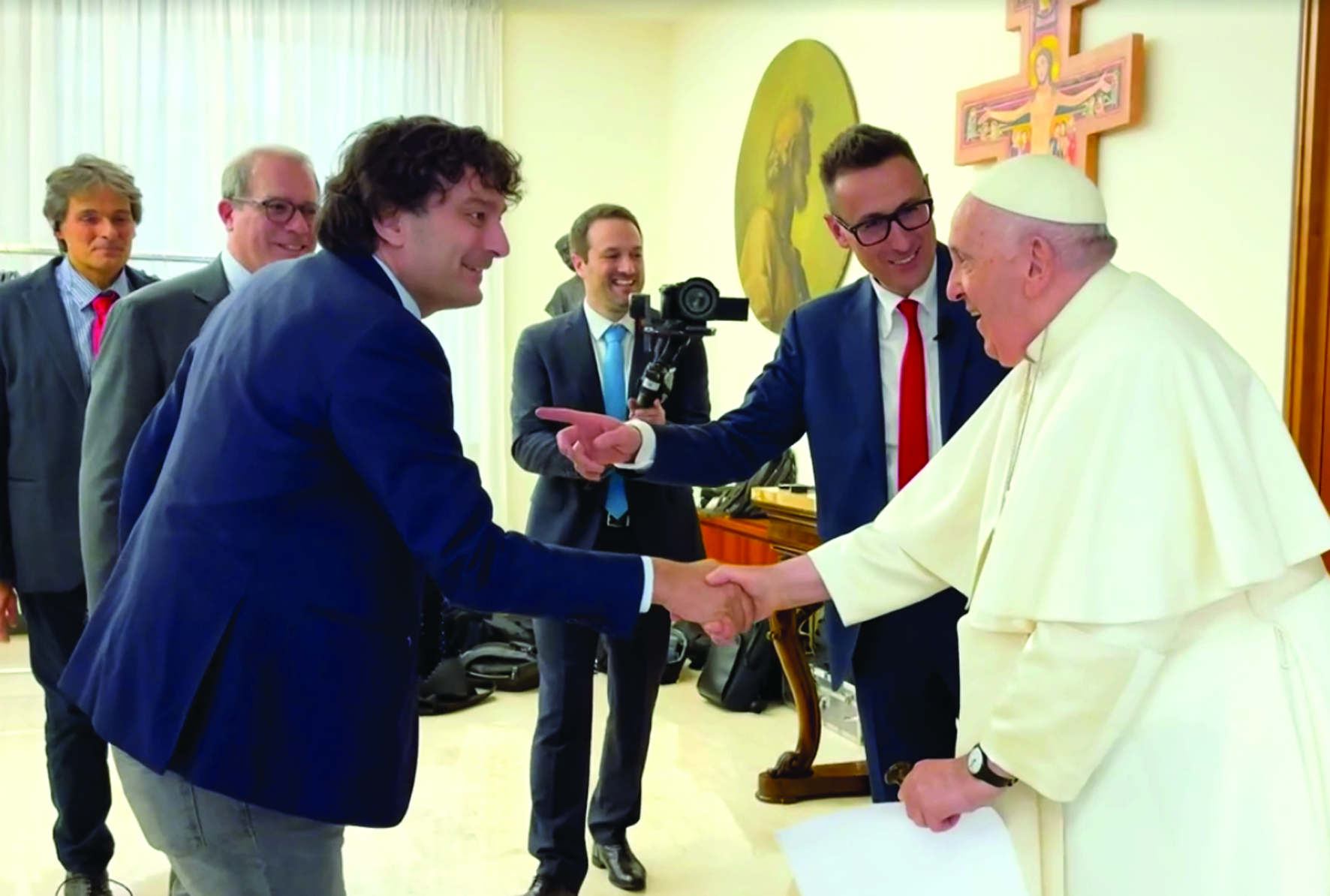
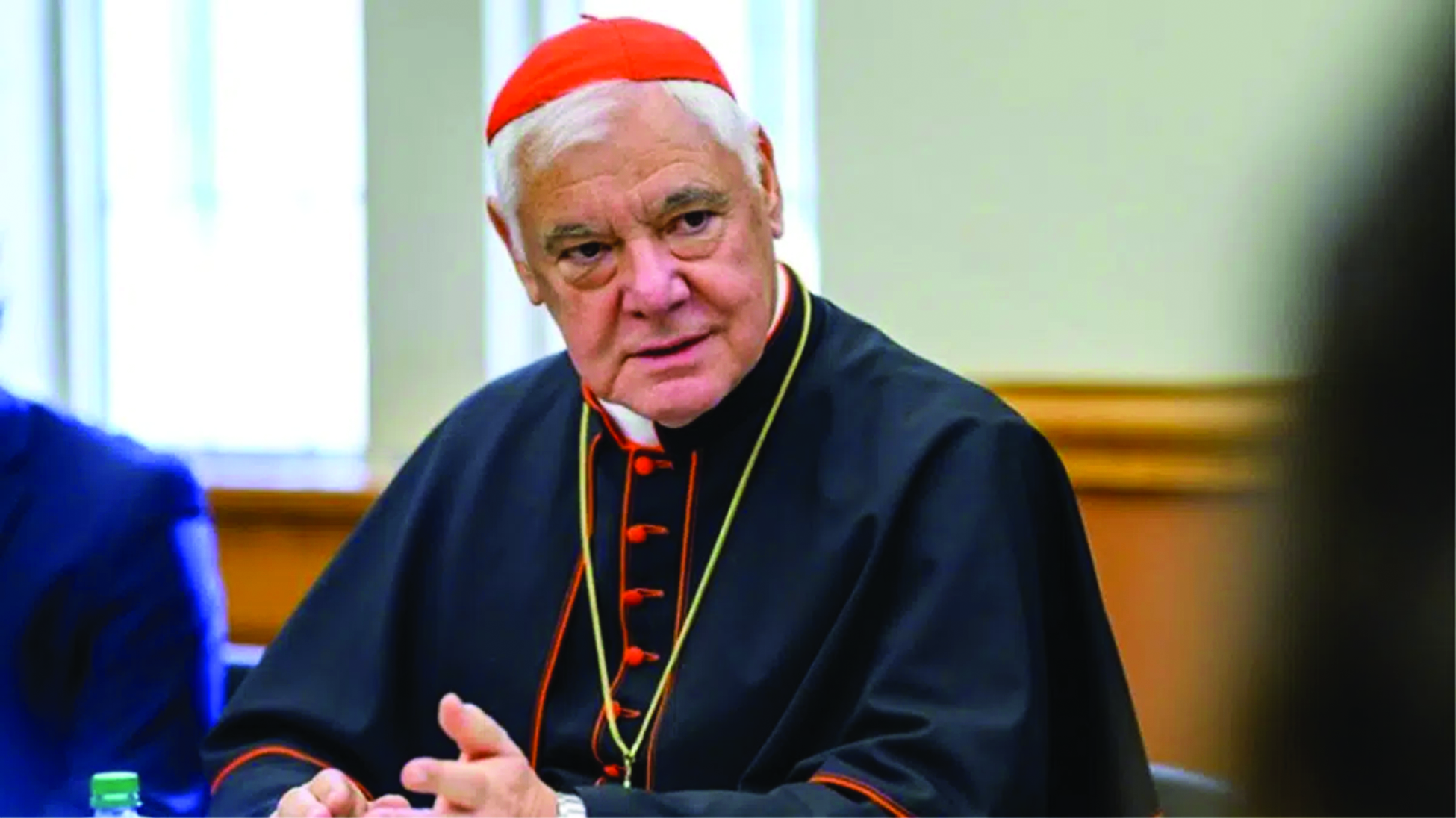
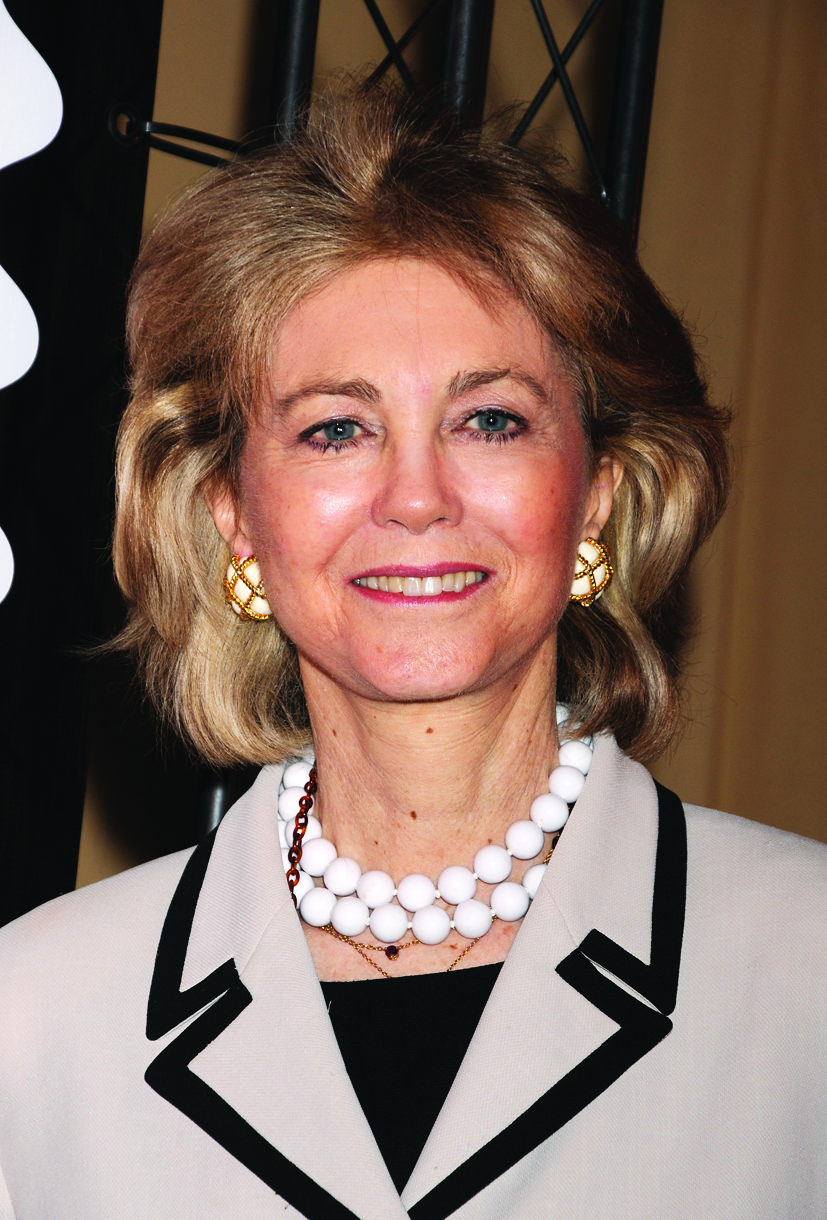
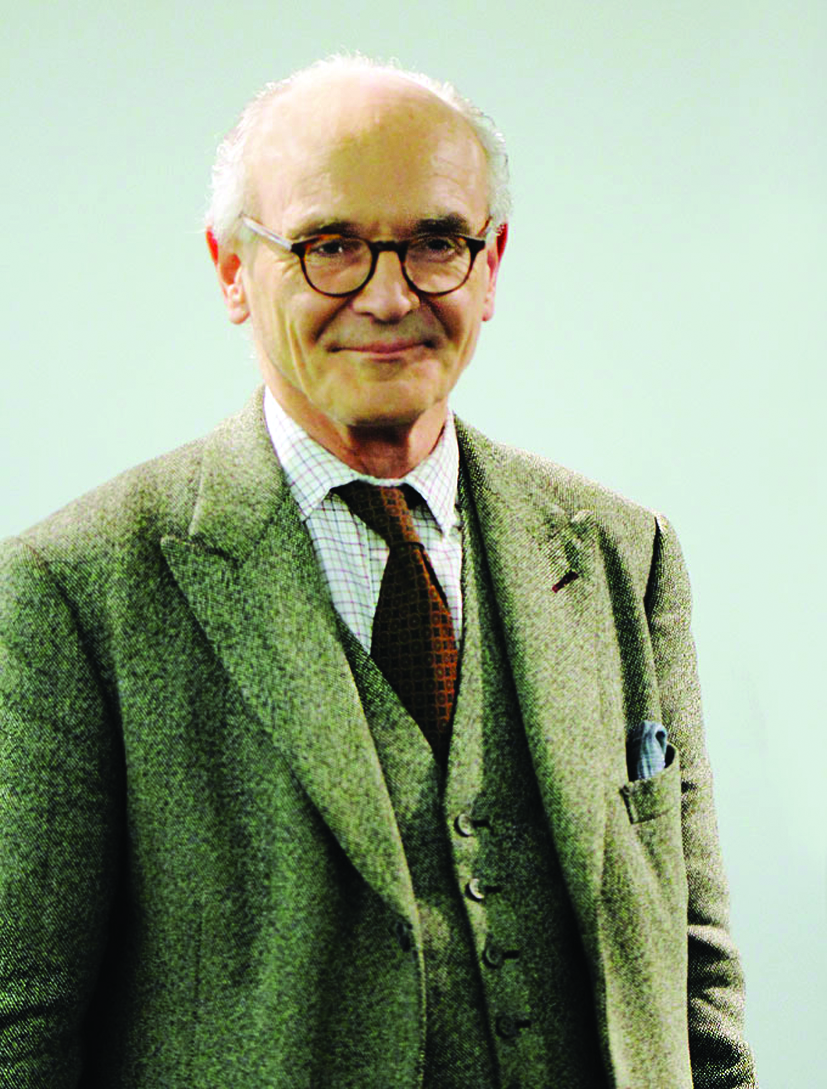
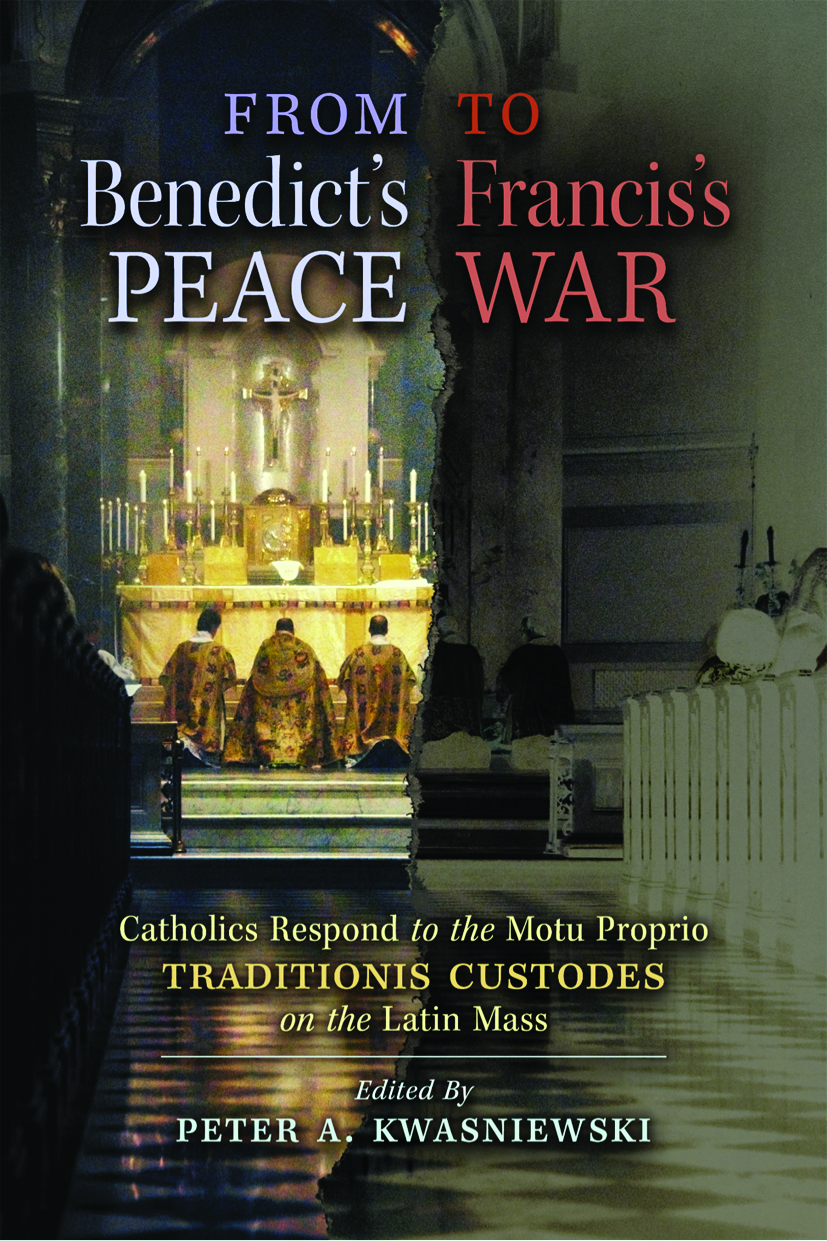
Facebook Comments